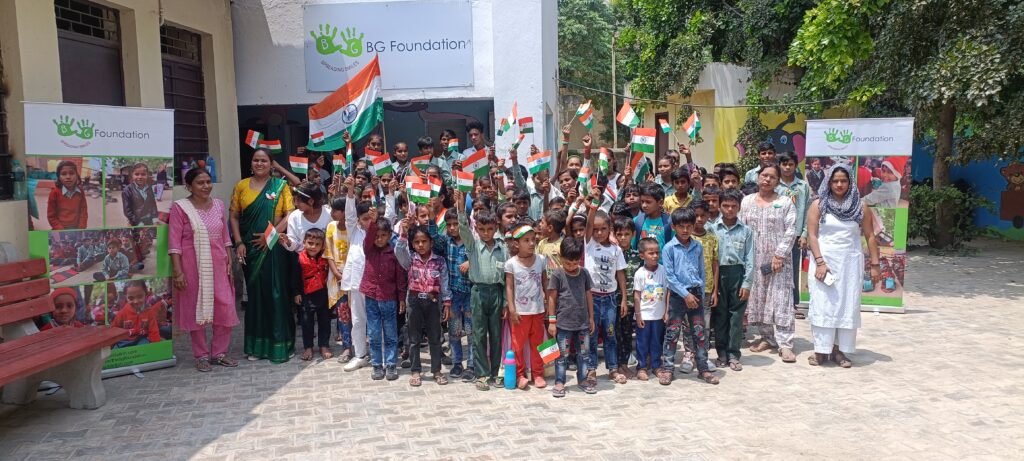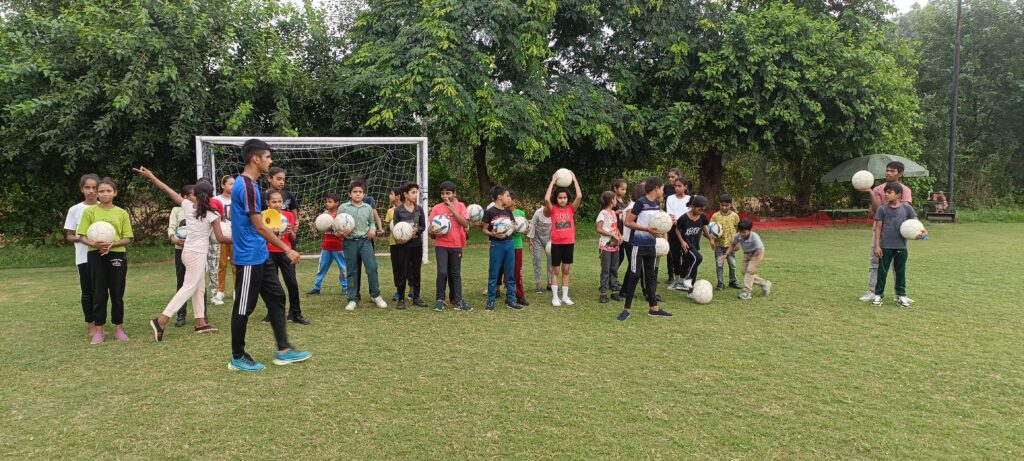Empowering the Next Generation

Empowering underprivileged youth is crucial for creating a more equitable society and ensuring that every individual has the opportunity to reach their full potential. These young people often face numerous challenges that hinder their skill development and limit their future prospects. By addressing these challenges and providing them with the necessary support and resources, we can help them overcome barriers and unlock a brighter future.
The Challenges Faced by Underprivileged Youth in Skill Development
Underprivileged youth face a myriad of challenges when it comes to skill development. One of the main challenges is limited access to quality education and training opportunities. Many of these young people come from low-income families and attend under-resourced schools that lack the necessary resources and infrastructure to provide a well-rounded education. This lack of access to quality education hampers their ability to acquire the skills needed to succeed in today’s competitive job market.
Another challenge faced by underprivileged youth is the lack of role models and mentors who can guide them in their skill development journey. Without positive role models, these young people may struggle to envision a successful future for themselves and may not have the necessary guidance to navigate the complexities of skill development.
Additionally, underprivileged youth often face socio-economic barriers that limit their access to opportunities for skill development. They may lack the financial resources to pursue higher education or vocational training programs, which further exacerbates their disadvantage.
The Impact of Skill Development on the Future of Underprivileged Youth
Skill development plays a crucial role in shaping the future of underprivileged youth. By acquiring relevant skills, these young people can enhance their employability and increase their chances of securing stable and well-paying jobs. Skill development also equips them with the tools needed to become self-sufficient and break free from the cycle of poverty.
Moreover, skill development opens up a world of opportunities for underprivileged youth. It allows them to explore different career paths and pursue their passions. With the right skills, they can enter industries that are in high demand and have the potential for growth, ensuring long-term job security and financial stability.
The Role of Education in Empowering Underprivileged Youth
Education plays a pivotal role in empowering underprivileged youth and enabling them to develop the necessary skills for success. It provides a strong foundation upon which they can build their future. Quality education equips them with essential literacy and numeracy skills, as well as critical thinking and problem-solving abilities.
Furthermore, education fosters a sense of empowerment and self-confidence in underprivileged youth. It instills in them a belief in their own abilities and potential, motivating them to strive for excellence and overcome obstacles. Education also helps them develop important life skills such as communication, teamwork, and adaptability, which are essential for success in any field.
The Role of Mentors in Skill Development for Underprivileged Youth
Mentors play a crucial role in the skill development of underprivileged youth. They provide guidance, support, and encouragement to these young people, helping them navigate the challenges they face and develop the necessary skills for success.
Mentors serve as positive role models who inspire underprivileged youth to dream big and believe in themselves. They share their own experiences and provide valuable insights into various career paths, helping these young people make informed decisions about their future.
Moreover, mentors offer practical advice and assistance in skill development. They can help underprivileged youth identify their strengths and interests, set goals, and create a roadmap for achieving those goals. Mentors also provide feedback and constructive criticism, helping these young people refine their skills and improve their performance.
The Importance of Vocational Training for Underprivileged Youth

Vocational training is of utmost importance for underprivileged youth as it equips them with practical skills that are directly applicable to the job market. Unlike traditional academic education, vocational training focuses on specific trades and industries, providing hands-on experience and specialized knowledge.
Vocational training programs offer underprivileged youth the opportunity to gain industry-relevant skills in a shorter period of time compared to traditional academic programs. This allows them to enter the workforce sooner and start earning a living. Vocational training also provides a pathway for those who may not have the means or desire to pursue higher education, enabling them to acquire valuable skills and secure stable employment.
The Benefits of Technology in Skill Development for Underprivileged Youth
Technology has revolutionized skill development and opened up new opportunities for underprivileged youth. Online learning platforms, for example, provide access to quality educational resources and training programs that were previously inaccessible to many. These platforms offer a wide range of courses in various fields, allowing underprivileged youth to acquire new skills at their own pace and convenience.
Furthermore, technology has made it easier for underprivileged youth to connect with mentors and industry professionals who can guide them in their skill development journey. Online mentorship programs and networking platforms enable these young people to seek advice, ask questions, and build valuable connections with professionals in their desired fields.
The Role of Non-Profit Organizations in Empowering Underprivileged Youth
Non-profit organizations play a crucial role in empowering underprivileged youth by providing them with the necessary support and resources for skill development. These organizations often offer scholarships, grants, and financial assistance to help underprivileged youth access quality education and training programs.
Non-profit organizations also provide mentorship programs, workshops, and career counseling services to underprivileged youth. They connect these young people with industry professionals who can guide them in their skill development journey and help them navigate the complexities of the job market.
Moreover, non-profit organizations collaborate with educational institutions, vocational training centers, and employers to create opportunities for underprivileged youth. They work towards bridging the gap between education and employment by providing internships, apprenticeships, and job placement services.
The Importance of Financial Literacy in Skill Development for Underprivileged Youth
Financial literacy is a crucial component of skill development for underprivileged youth. It equips them with the knowledge and skills needed to make informed financial decisions and manage their resources effectively.
By understanding basic financial concepts such as budgeting, saving, and investing, underprivileged youth can make better decisions about their education, career, and future. Financial literacy also helps them navigate the complexities of the job market, negotiate salaries, and plan for long-term financial goals.
Furthermore, financial literacy empowers underprivileged youth to break free from the cycle of poverty. By learning about entrepreneurship and financial management, they can start their own businesses and create opportunities for themselves and their communities.
The Need for Government Support in Empowering Underprivileged Youth
Government support is crucial for empowering underprivileged youth and ensuring equal access to skill development opportunities. Governments can play a key role in creating policies and programs that address the challenges faced by underprivileged youth and provide them with the necessary support.
Governments can invest in education by allocating resources to improve the quality of schools in underprivileged areas and provide scholarships and grants to financially disadvantaged students. They can also collaborate with non-profit organizations, vocational training centers, and employers to create apprenticeship programs and job placement services for underprivileged youth.
Furthermore, governments can implement financial literacy programs in schools and communities to equip underprivileged youth with the necessary knowledge and skills to make informed financial decisions.
The Power of Skill Development in Empowering Underprivileged Youth
Empowering underprivileged youth through skill development is not only a moral imperative but also an investment in the future of our society. By addressing the challenges faced by these young people and providing them with the necessary support and resources, we can unlock their potential and create a more equitable society.
Skill development opens up a world of opportunities for underprivileged youth, enabling them to secure stable employment, break free from the cycle of poverty, and contribute to the economic growth of their communities. It equips them with the tools needed to navigate the complexities of the job market and adapt to the ever-changing demands of the global economy.
Through education, mentorship, vocational training, and financial literacy, we can empower underprivileged youth and give them the skills they need to succeed. By working together – governments, non-profit organizations, educational institutions, and individuals – we can create a more inclusive society where every young person has the opportunity to thrive.



